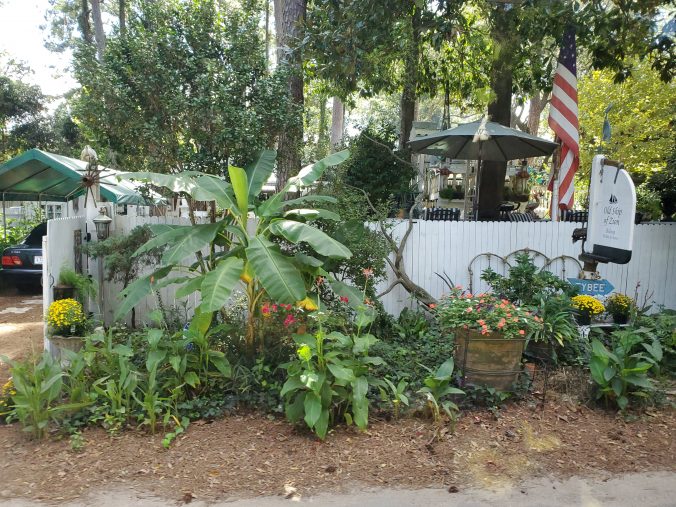Listening to the voice of our Gullah tour guide, the incomparable Emory Shaw Campbell, takes you on a journey that makes one feel like the voices of the ancestors from our past and present combine into a musicality that lulls one into a sense of peaceful tranquility.
We drove past beautiful timeshares, large, elaborate new homes, and active construction sites, juxtaposed against lands still owned by the few original Gullah families who have been able to stave off the powerful forces of gentrification, at least for now.
“”Uncle” Emory, as one of my fellow Black Writers honorably referred to him, told us the story of the fences that now covered these sacred lands.
“When I was growing up, we had no fences. We did not need them.”
I looked across the street at the structure he called a fence. It seemed to be more like a concrete barrier, hiding a large home behind the wall-type structure. On the other side of the street was a home that had incredibly intricate landscaping and artwork that told the story of a long-time resident and local artist.
“They built that fence so they didn’t have to see the artist’s house and all that comes with it. And he let them because he didn’t want to see them either.”
I wonder if the people in the new house behind the fence realize that as much as they are trying to keep the image of his home out of their view, the man across the street wants very much the same.
I wonder if the people in the new house see the “old” house as more than just a physical dwelling. They are judging someone’s history, their story, an extension of the expression of their art, and themselves.
It is more than just a house. It is a home.
And then I wonder further if the artist breathed a sigh of relief after the fence was constructed. He also did not have to look into the external manifestation of all things new. There is so much that has attempted to usurp the Gullah lands, the Gullah culture, the Gullah language, and the Gullah history.
Did he look at these new homes and see his Gullah way of life slowly slipping away? Did he see the fence as the barrier that was potentially keeping the new from completely erasing the old? Did he see this fence that was built as a way to keep others out as a way to keep his way of life…in?
Fences: “enclosing an area of ground to mark a boundary, control access, or prevent escape” (Oxford Dictionary).
Boundaries, control, to prevent escape—all the metaphorical reality of the Gullah’s fight to preserve their lands, their culture, their language, and their history.
These fences have become the ever-deepening chasm between the old and the new.
Selah.

Leave a Reply